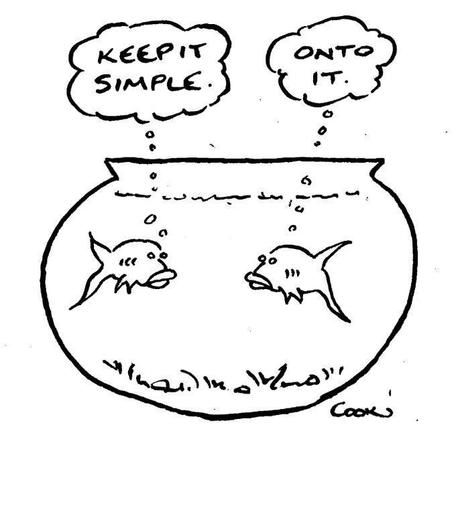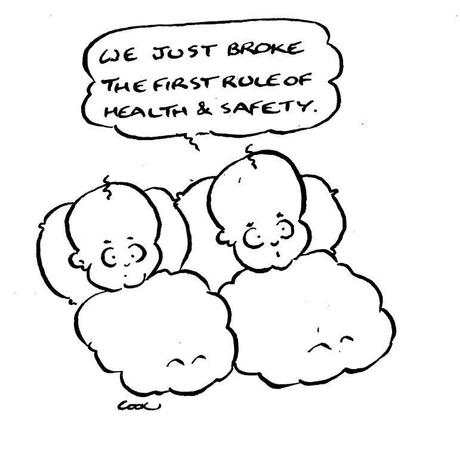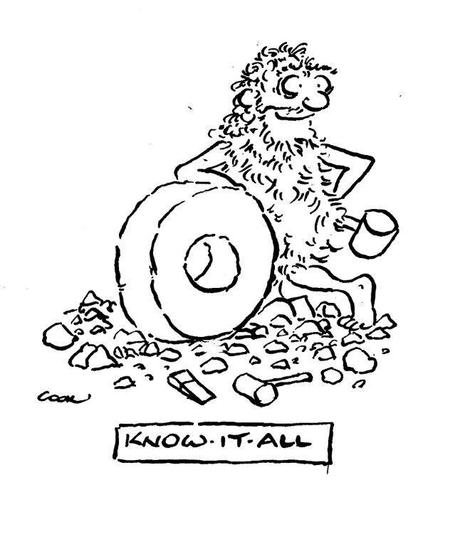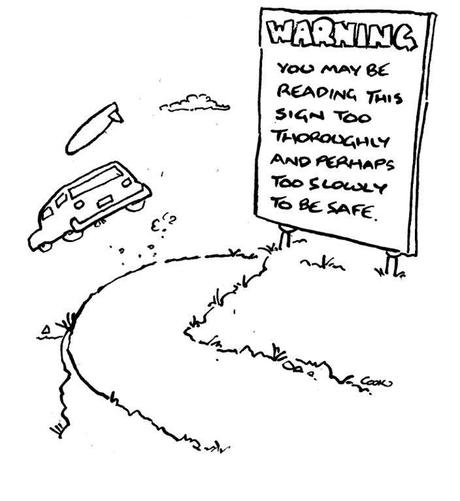
For clarity, de-clutter.

Sometimes it feels we are doing the right thing, like setting lots of different speed limits for different road environments. Yet research shows that fewer changes in speed zones lead to fewer accidents.
The obvious reason might be that drivers concentrate less on the speedometer and more on the road. But complexity can be more devious than that.
Experiments in Europe find that fewer signs altogether – not just speed ones – make people drive more safely. In the words of Dutch traffic engineer, Hans Monderman, a road with lots of signs says to the driver: “Don’t worry, go as fast as you want, there’s no need to pay attention to the your surroundings.”
Excessive signage encourages carelessness, whereas a sense of risk can focus attention.
Attempts to protect people often backfire.

And that’s despite findings that so-called ‘cognitive fluency’ – making something easy to read and understand – induces positive feelings on the part of the reader. Given the reader is probably the customer, you would have thought businesses would do more to adopt ‘plain language’ in a fluent form.
Stress is closely associated with complexity.

Simple things can help. Even just cleaning your office can boost clarity if you aggressively bin most of the stuff that has built up on your desk. Just ask how important that stuff is. In my experience, most of it isn’t.
That can work at the strategic level. You target business activities more precisely by making clear decisions about where you do not want to play as much as where you do.
Sometimes that highlights opportunities. Budget supermarket, Aldi, takes market share from big chains by targeting about 1,500 product lines, rather than the 30,000 or more of the larger players. They have carved out market headroom by choosing where not to play.
More alert and less stressed.

Creativity is constrained if roles are heavily specified or instructions are weighed down with too much information. Just as over-informed investors make worse decisions than those relying on less data, simple instructions give people a chance to find their own way through.
‘Complexity creep’ can infect any activity. Remembering these odd quirks of simplicity help keep it in check: the less people hear, the more they remember; the greater the risk, the more they pay attention; the less cluttered the mission, the more creative the action.

